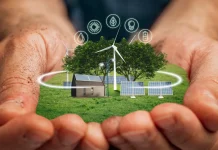International solar energy developer, investment and asset manager based in Dubai, Phanes Group, is set to develop three 100 megawatts (Mw) grid-connected solar plants in Nigeria.
The projects will raise Nigeria’s solar capacity and boost government’s effort to generate 2000Mw of power from renewable sources by 2020.
The projects are in three locations, the Mando area of Kaduna, Birnin-Kebbi in Kebbi and Sokoto in the Northwest, The Nation reports.
The Sokoto project will benefit from one of the highest irradiation levels (2210 kwh/m2/year) in the country, and is backed by one of the 14 Power Purchase Agreements (PPAs) with utility-scale solar power developers, which will add around 1,200Mw of solar capacity to the grid.
The first 50Mw of the Sokoto project will be grid-connected in the first quarter of 2018, and the project is expected to be completed by the end of that year. The Kebbi and Kaduna projects will be delivered under the Hasken-Rana brand (meaning ‘sunshine’ in Hausa) – a joint venture between Phanes Group and its Nigerian partners. They will be completed before the end of 2019.
Phanes Group Chief Executive Officer Martin Haupts said: “Nigeria’s policy makers have worked proactively to address the nation’s immediate and long term electrification challenges through the introduction of attractive clean energy policies, and we are beginning to see the fruits of those policies.
“Despite its challenges, Nigeria’s potential for solar development is unquestionable and from a standing start it may soon emerge as solar leader among its sub-Saharan African peers. These new commercially viable projects demonstrate the strength of public, private partnerships whilst setting Nigeria on positive to course greater energy security and economic development – a model for African solar deployment.”
The Federal Government’s target is that 75 per cent of the country would be grid connected by 2020 at 1.5 million households yearly.
In addition to grid extensions, Nigeria will also seek non-grid solutions from renewable sources such as solar, wind and medium hydro to ensure communities have equal access to a secure power supply, phasing out expensive diesel powered generators.












